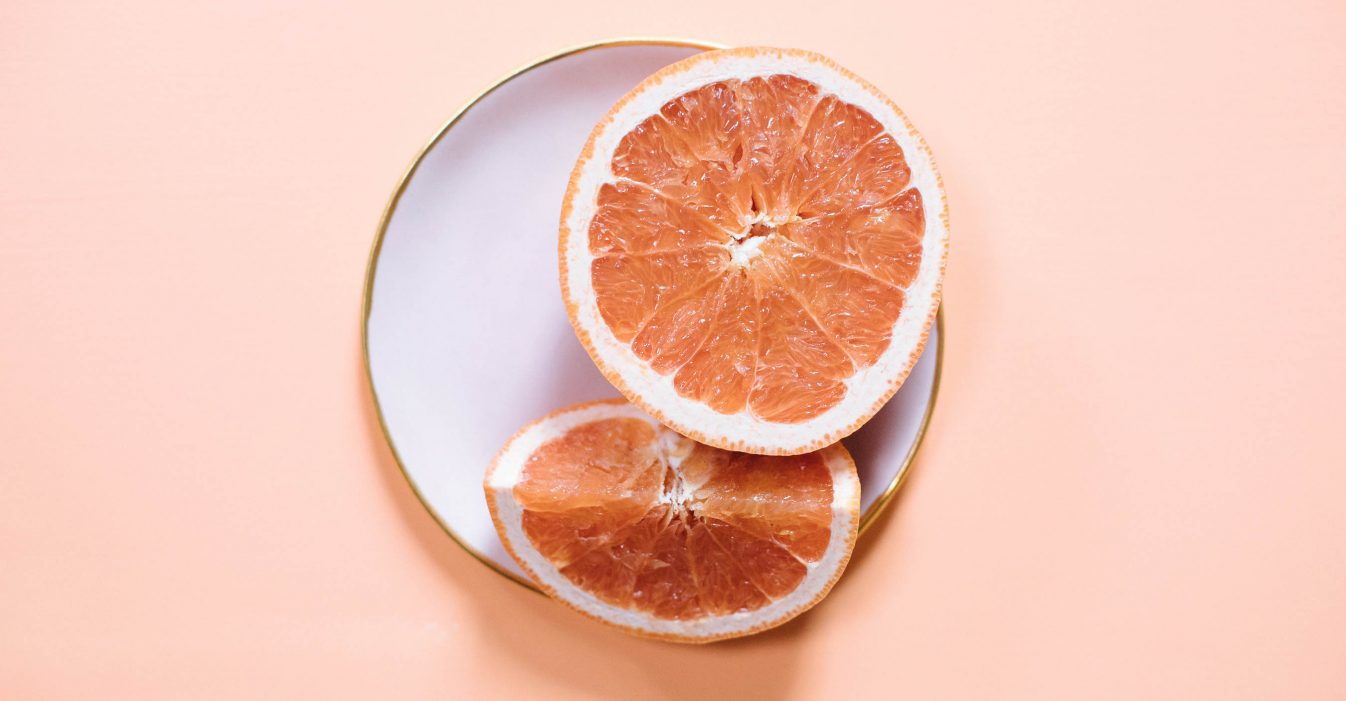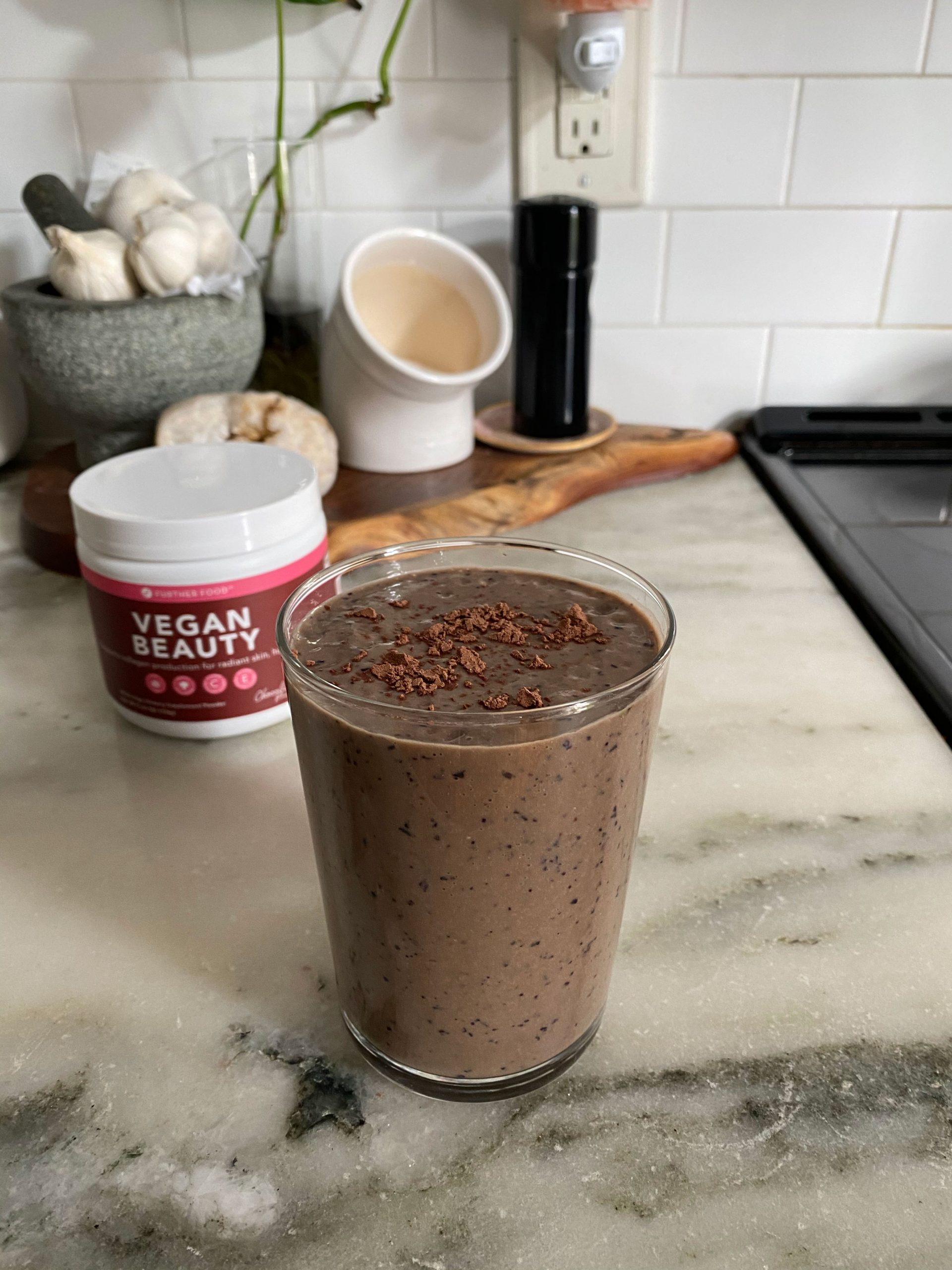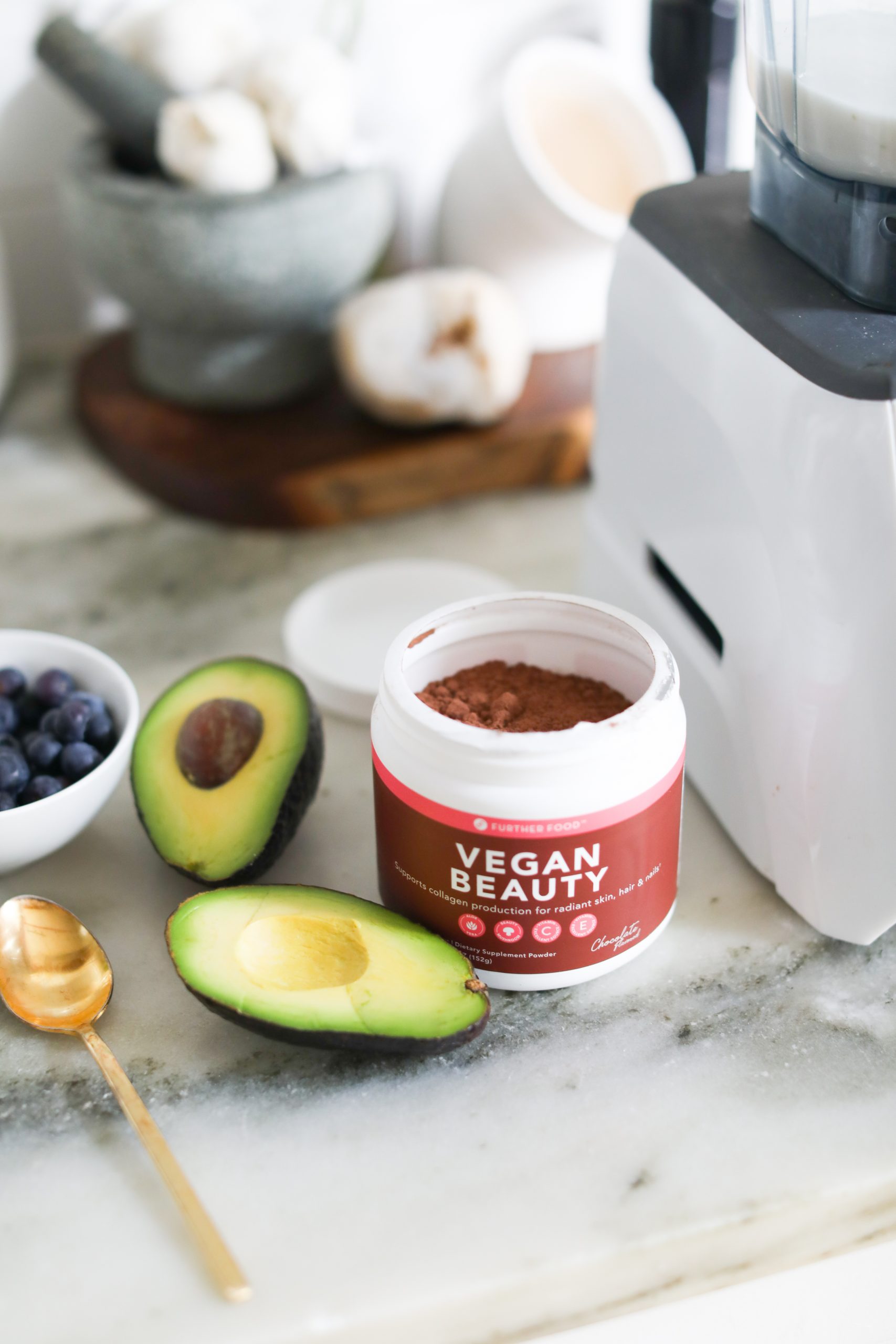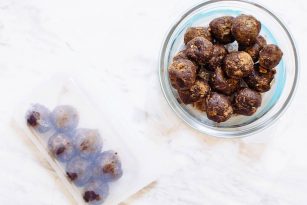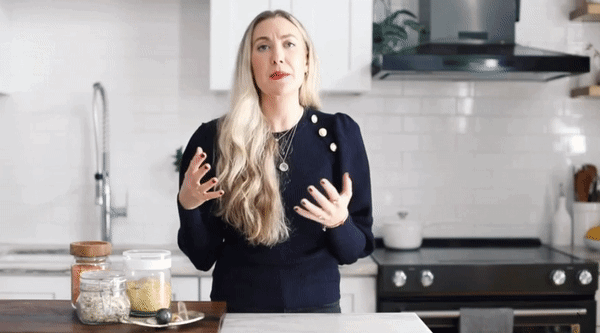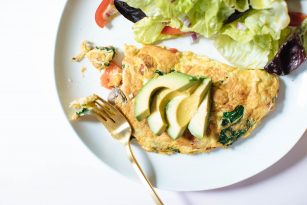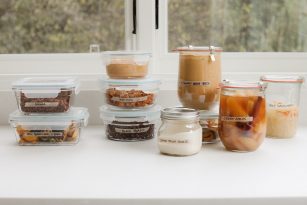Collagen protein powder can now be found in matcha lattes to brownies — but what is collagen?
How is collagen produced in the body? What nutrients are involved in collagen production and what causes the breakdown of collagen?
Let’s take a look at the biology of collagen and dive into collagen-related products so you can best navigate the growing collagen product market and know what’s best for you.
What Is Collagen?
Collagen is a fibrous protein found in the bone, teeth, skin, tendons, cartilage, blood vessels, hair, and nails. Collagen is a structural protein that plays a key role in the structure and holding the body together, essentially. Interestingly, there are some types of collagen fibrils, gram-for-gram, that are stronger than steel.
Think of collagen protein as a glue that keeps our body together and accounts for about a third of our total body protein.
Collagen is made of three polypeptide chains that are cross-linked for strength and made with glycine, proline, hydroxylysine, and hydroxyproline — all are amino acids and the latter two are not found in any other proteins.
Collagen polypeptides are also attached to carbohydrate chains, which also make them glycoproteins. Glycoproteins help support our immune system, digestive system, and reproductive systems. (1)
How Does The Body Make Collagen?
Your body makes collagen out of key vitamins, minerals, and through multiple processes. All proteins contain amino acids and the most abundant amino acid found in collagen is glycine, which is an essential amino acid.
As you age, it’s natural and normal for collagen to decrease, which can contribute to less flexible ligaments, weakening muscles, joint pain, wrinkles, and may thin the lining of your digestive tract which can cause digestive issues. (2) (3)
Besides aging, the most common reason someone doesn’t produce enough collagen is poor nutrition or poor diet or eating too much sugar, lacking the essential nutrients your body needs to create collagen. (4)
Just as the body can make collagen, it also can be broken down from damaging actions like spending too much time in the sun and smoking.
Key nutrients involved in collagen production
Vitamin C is key to collagen production. In addition to vitamin C, iron also plays an important role.
You can see, although this seems simple for our body to maintain healthy skin, hair, nails, connective tissue, tendons, cartilage, bone, and teeth — it’s also heavily dependent on our body’s supply of vitamin C.
Vitamin C deficiency is rare in the modern-day, but in order to support your body in producing collagen, make sure you’re eating foods rich in vitamin C, iron, and other collagen-producing nutrients.
Also, if you’re a meat-eater you’re most likely eating plenty of the amino acids and nutrients required to produce collagen. Your body will break collagen down in the gut and reuse it to build more proteins.
Zinc, an abundant nutrient in meat-rich diets, is a key nutrient in this process and the function of collagenase which digests collagen in the gut. Although plant-based diets may not contain the same load of amino acids as meat-rich diets, they can still provide the nutrients needed to create collagen.
Further Food Vegan Beauty Collagen Booster tastes delicious and is so easy to add to your daily smoothie, in baked goods, shakes, coffee, almond milk for chocolate milk, or even with hot water to make hot cocoa to support your beauty routine from the inside. Get 15% off of your first order of Further Food Vegan Beauty Collagen Booster using code: NUTRITIONSTRIPPED.
Foods rich in collagen-producing nutrients
Foods that contain vitamin C, iron, silicon, proline, lysine, threonine, and zinc are important in the collagen production process.
Vitamin C
Vitamin C-rich foods are found in a variety of foods you may have in the kitchen already. These foods include citrus fruits, peppers, cherries, chives, parsley, rose hips, currants, guava, kale, tomatoes, leeks, and so many more.
Silicon
Silicon-rich foods are abundantly found in plant-based foods like oats, whole wheat, nuts, root vegetables, seafood, and organ meats. (5)
Proline
Proline, the amino acid, is found in gelatin, cheeses, beef, soy protein, cabbage, yogurt, asparagus, bamboo shoots, seaweed, mushrooms, sunflower seeds, and more.
Lysine
Lysine-rich foods are found abundantly in animal proteins and dairy. Lysine is also found in plant-based sources like avocados, apricots, mangoes, tomatoes, potatoes, peas, peppers, leeks, beets, legumes, soy, pumpkin seeds, cashews, pistachios, and grains like quinoa, amaranth, and buckwheat.
Iron
Iron-rich foods include animal proteins and organ meats like liver, kidneys, red meat, and shellfish. There are plant-based sources of iron which include spinach, legumes, quinoa, pumpkin seeds, molasses, broccoli, tahini, and tofu.
Threonine
Threonine is another amino acid needed for collagen production, is essential meaning your body can’t make it so you have to get it from your diet. Foods rich in threonine include lentils, peanuts, eggs, animal proteins, chickpeas, beans, and asparagus.
In addition to food sources, supplements can be taken to make sure you’re getting enough of these nutrients to produce collagen, but if you’re consuming a diet rich in whole foods, you’re most likely getting enough of these key nutrients. If not, just chat with your dietitian to get a proper plan in place for supplementation needs
Should I Take Collagen Supplements or Use Collagen Powder?
If you enjoy them, go for it!
There are some studies showing that consuming collagen peptide powders rich in the amino acid glycine may improve joint health, reduce joint pain, improve skin elasticity, reduce intestinal inflammation, may improve quality of sleep, and may improve wound healing. (7) (8) (9) (10) (11) (12)
Just like anything with our food choices, you can try it out and see if it uniquely works for you.
There are some great plant-based collagen boosters to add to your daily smoothie to get the boost of nutrients your body needs to produce collagen in the first place.
We love using Further Food Vegan Beauty Collagen Booster, which is rich in Vitamin C & E and Aloe Vera.
It’s made with premium plant-based, real food ingredients and contains tremella, an antioxidant-rich mushroom known for keeping skin hydrated and radiant; plus it tastes decadent with a rich, dark chocolate flavor. We’re also impressed with Further Food’s commitment to quality. Every product is independently lab tested and verified for quality, purity & potency.
Get 15% off of your first order of Further Food Vegan Beauty Collagen Booster using code: NUTRITIONSTRIPPED.
In addition to the plant-based nutrients to support your body in collagen production, the Vegan Collagen Booster tastes delicious and is so easy to add to your daily smoothie, in baked goods, shakes, coffee, to almond milk for chocolate milk, or even to hot water to make hot cocoa to support your beauty routine from the inside.
If you are increasing the protein in your diet, such as collagen protein powder, you will increase the intake of amino acids in your diet.
By consuming more amino acids in your diet, especially glycine, which are the building blocks of protein, you’ll reap the benefits of a diet richer in protein. Protein is heavily involved in collagen production within the body — oftentimes protein sources also contain the nutrients needed for collagen production. Protein is also a key macronutrient for maintaining the overall health of the hair, skin, nails, etc.
Protein is also largely responsible for improving gut function and supporting the cell turnover that happens — glutamine for example, is an amino acid that’s a key player in gut health and gut function and is found abundantly in protein-rich foods.
Glutamine is also found in collagen powders, but also plant-based protein powders and animal-based protein powders, and even cabbage.

